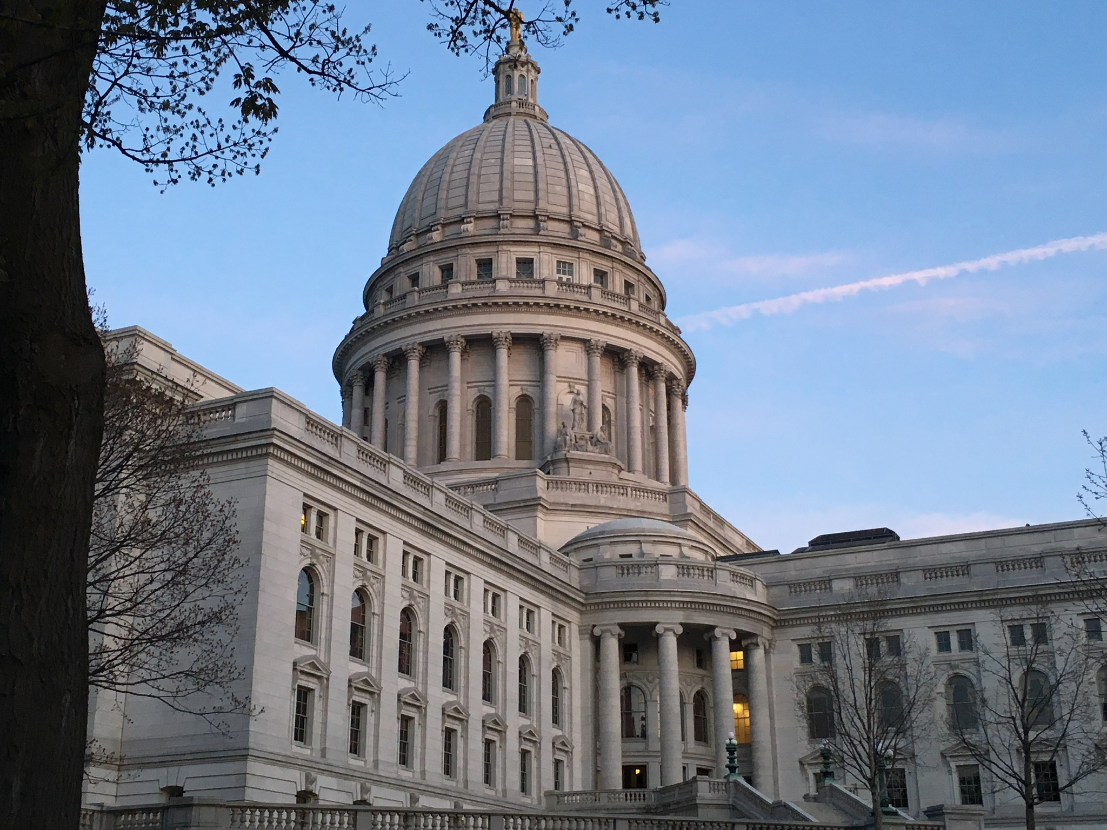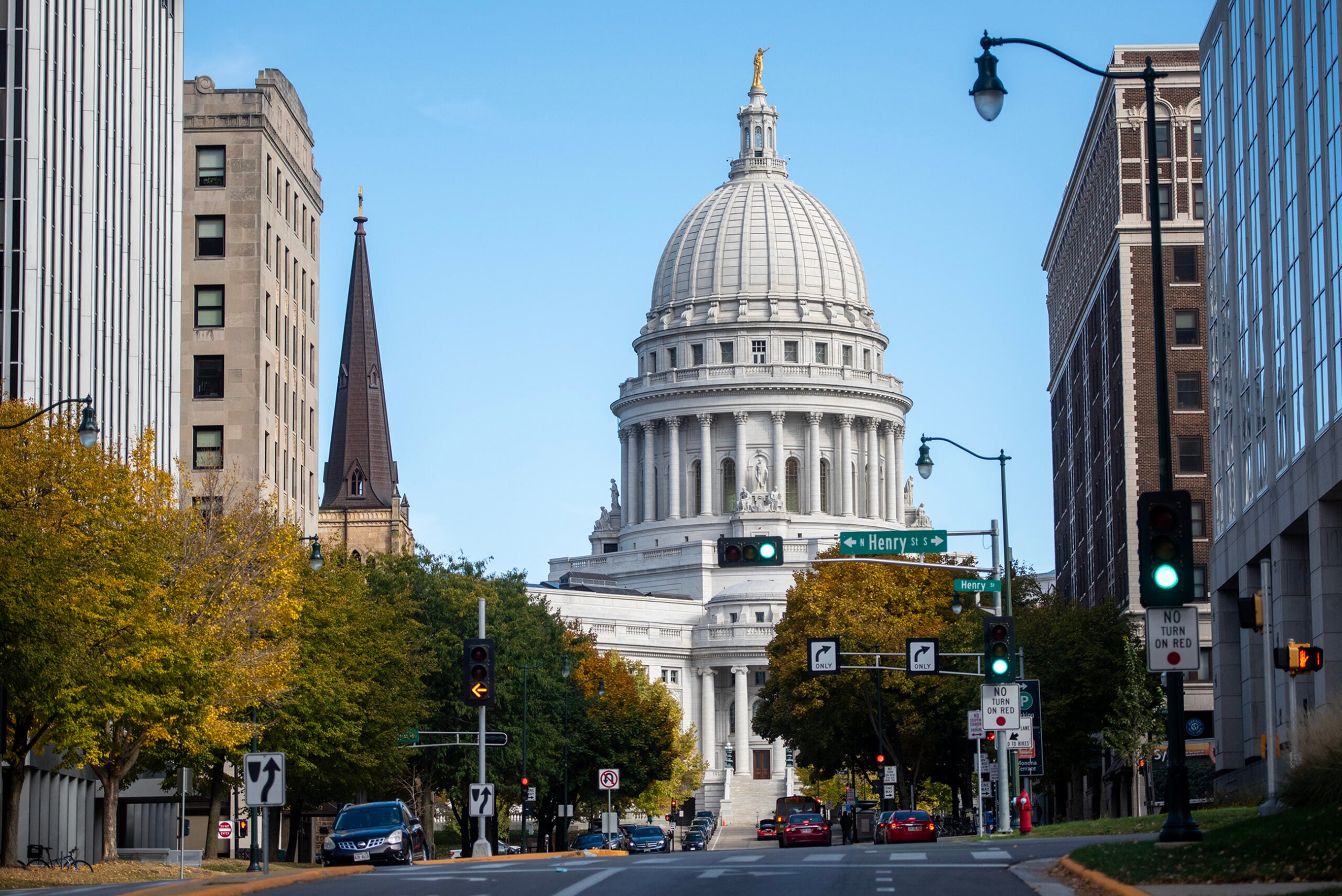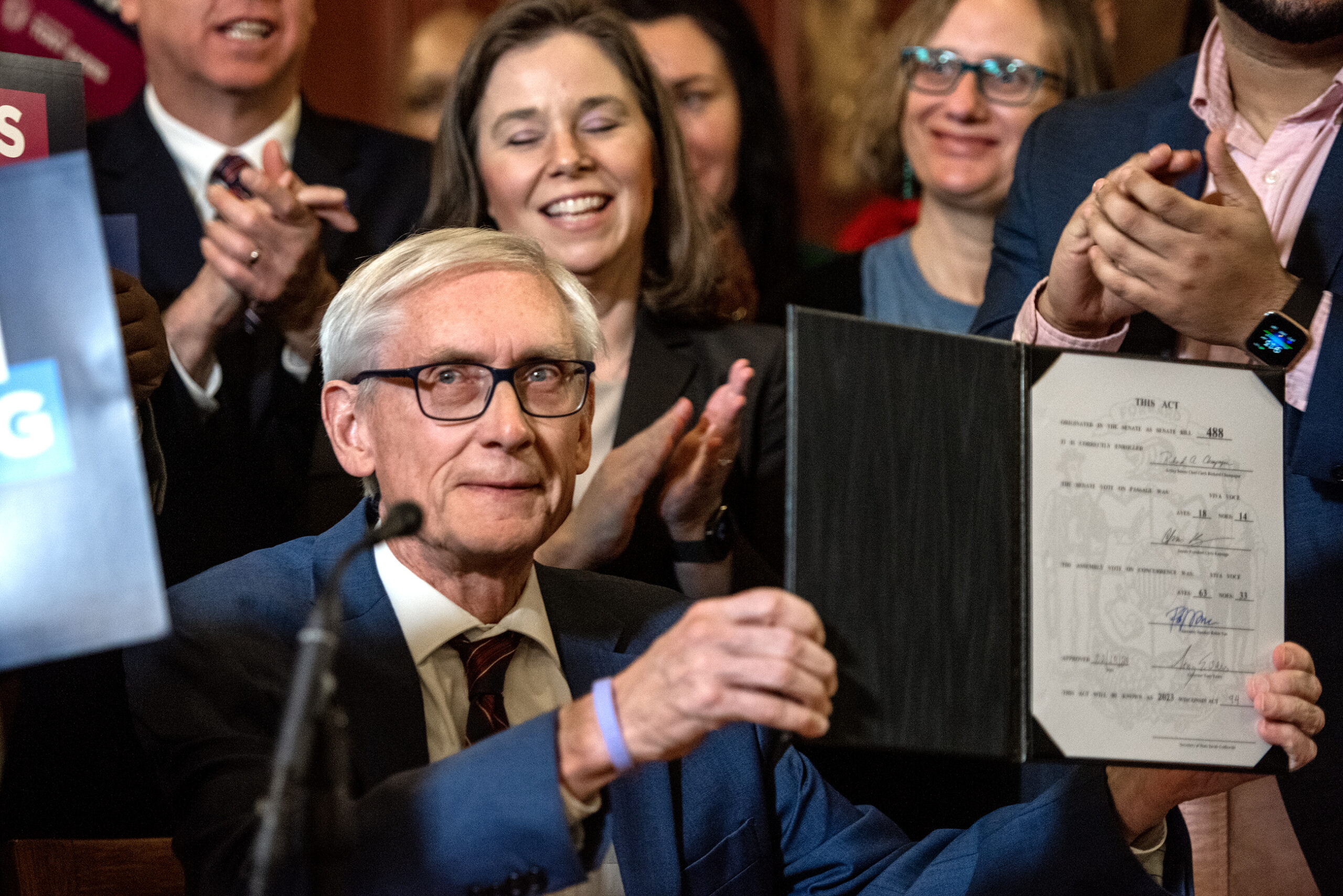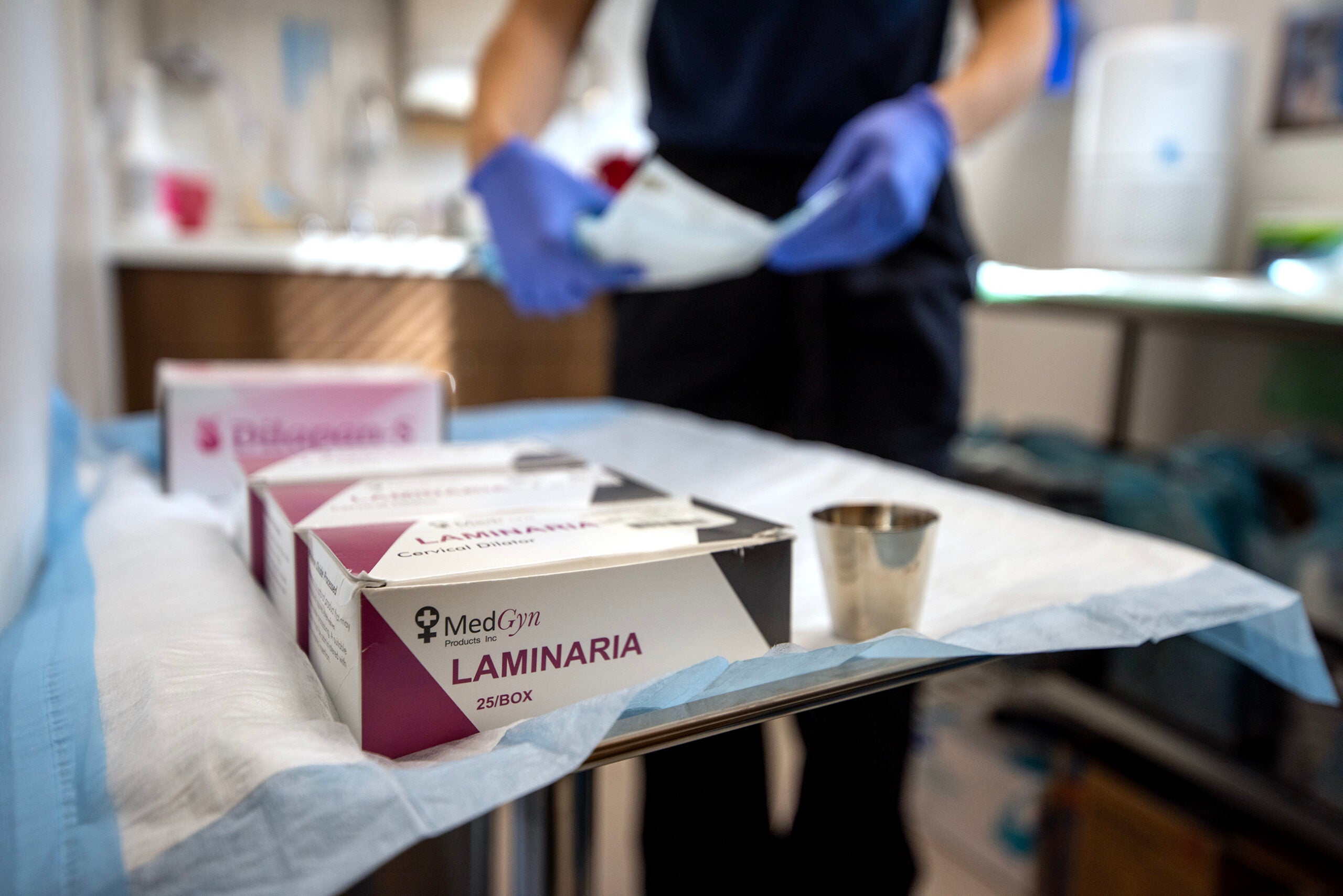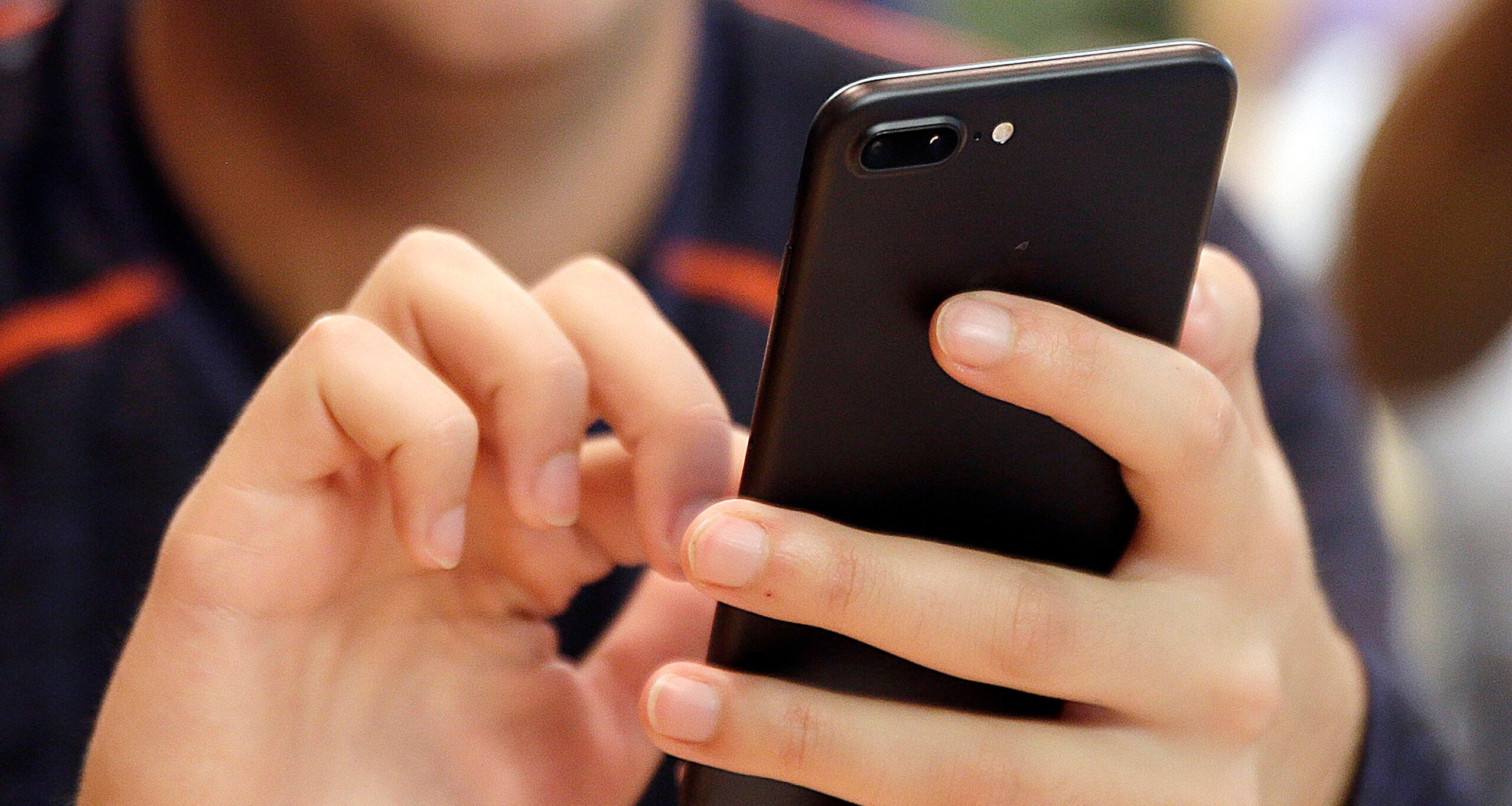The state Senate on Wednesday passed a set of bills aimed at regulating abortion in Wisconsin, including a so-called “born alive” bill.
The measure would require doctors to provide medical care to fetuses born alive after an attempted abortion. It passed the Senate on a vote of 18-14, with the majority of Republicans supporting the plan and Democrats opposing.
Republican Sen. Andre Jacque, R-De Pere, joined Democrats to vote against the bill. Jacque had attempted to insert harsher penalties for the mother into the plan.
News with a little more humanity
WPR’s “Wisconsin Today” newsletter keeps you connected to the state you love without feeling overwhelmed. No paywall. No agenda. No corporate filter.
Sen. Chris Larson, D-Milwaukee, did not vote.
The state Assembly approved the bill last month. Democratic Gov. Tony Evers has vowed to veto it.
During floor debate, Sen. Roger Roth, R-Appleton, said the proposal isn’t an “anti-abortion” measure.
“Deciding not to let a vulnerable, defenseless newborn die is not anti-abortion, it’s anti-murder,” Roth said. “No child should be left to die, no matter how they came into this world.”
Under the bill, doctors who do not provide the required care to babies born breathing or with a beating heart after an attempted abortion may be charged with a felony, fined up to $10,000 and imprisoned for up to six years.
The proposal would also charge doctors who cause the death of a child born alive after an attempted abortion with a felony and penalize them with up to life imprisonment, the same penalty as first-degree intentional homicide.
Opponents of the measure have argued such “born alive” instances are very rare and, if a baby is born alive after an attempted abortion, doctors are already bound by professional ethics to care for it.
Senate Minority Leader Jennifer Shilling, D-La Crosse, said Republicans were using the bill as a “smoke screen.”
“It is the same smoke screen the majority party uses to distract from their true agenda, which is to push abortion out of reach for women in Wisconsin,” Shilling said.
The American College of Obstetricians and Gynecologists and the Wisconsin Medical Society oppose the bill. Wisconsin Catholic Conference, Wisconsin Right to Life and Wisconsin Family Action support it.
The Senate also voted to approve three other abortion-related bills.
One bill would require medical professionals to inform a woman about the possibilities of continuing a pregnancy after ingesting an abortion-inducing drug. It passed with a vote of 19-13.
The second bill would penalize medical providers for performing an abortion if they know a women is seeking it because of the race, color, national origin, ancestry or sex of the fetus or solely because of a diagnosis or potential diagnosis of Down syndrome or another congenital disability.
“It’s important the we stand united against discrimination at all stages of life,” said Sen. Patrick Testin, R-Stevens Point.
The bill passed 19-13.
The last bill would prohibit people who are on Medicaid in Wisconsin from using those benefits to receive an abortion, except in cases that threaten the life or long-term health of the mother or pregnancies that result from rape or incest. The plan is aimed at stopping the flow of state money to Planned Parenthood. It also passed 19-13.
Current law in Wisconsin prohibits any person from performing or inducing an abortion after 20 weeks, except in cases of medical emergency.
Other Senate Action
The Senate also voted to approve a bill to create exceptions to so-called “step therapy” prescription drug prescribing protocols in Wisconsin. “Step therapy” occurs when health insurers push for patients to try the least expensive drug before more costly or riskier therapies. Some argue that can prevent patients from getting the treatment their doctors say they need. The bill has yet to be voted on in the Assembly.
Senators also approved a bill that would legalize paddlewheel raffles in Wisconsin. That bill also has yet to be voted on in the Assembly.
Wisconsin Public Radio, © Copyright 2026, Board of Regents of the University of Wisconsin System and Wisconsin Educational Communications Board.

